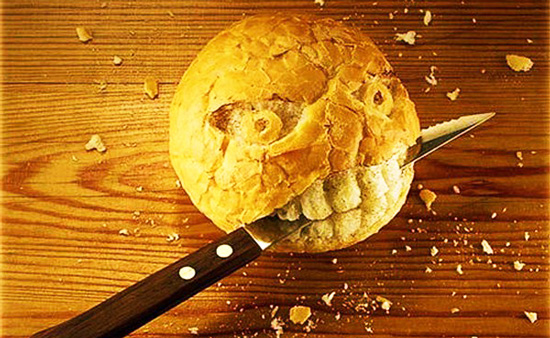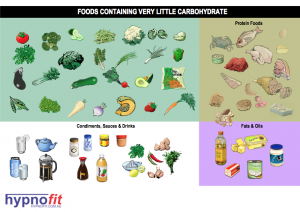If you have declared war on Carbohydrates then you are on a one-way campaign to facing your own personal defeat. You need to lay down your dietary weapons and forge an alliance with carbohydrates.
[x_video_embed type=”16:9″][/x_video_embed]
When Leah first came to see me she was waging that very same war with Carbs however she was losing the battle and not the weight. This was no surprise to me, as I know that willpower usually lasts no more than 2 weeks. Leah tried valiantly to eliminate Carbs from her diet in the hope that she would lose weight. Instead this behaviour leads her to a state of deprivation. Leah’s unhealthy binge cycle looked something like this:
The Carbohydrate Deprivation Battle – Binge Cycle
The first thing Leah needed to do was make peace with Carbs because they really aren’t the bad guys. I helped Leah understand that both physically and mentally she needed carbohydrates in her diet. The real issue was to manage her intake of Carbs which included HOW MUCH and WHEN they were to be eaten.
We all need carbohydrates for the following reasons:
- They are used as energy to be used throughout the course of the day
- They provide fuel for physical work or exercise
- They replenish glucose and glycogen stores to prevent fatigue
- The central nervous system, the kidneys, the brain, the muscles (including the heart) need them to function properly
So how do we make sure we give our bodies the carbohydrates that it needs without adding body fat and still achieve our weight loss goals?
6 RULES OF ENGAGEMENT
DO NOT
- Eat simple Carbs (high GI) such as white bread, biscuits, ice cream and pastries which get added straight to your fat stores and provide no nutritional value
- Eat Carbs indiscriminately at any time of the day
- Eat Carbs late at night
DO
- Eat complex Carbs (low GI) such as sweet potatoes, brown rice, oatmeal, quinoa
- Eat the majority of your complex Carbs early in the day and at the post-workout meal, tapering off on them as the day goes on
- Stick to proteins and fibrous Carbs at night such as green veggies like broccoli, asparagus, spinach, lettuce, celery & cucumbers etc.
Carb Recycling!
So much has been written about Carbs but amazingly not many people have heard of Carb Recycling. The theory of Carb Recycling is that it allows you to still eat carbs from clean sources, without adding body fat. Carb Recycling also enables you to direct the body to better utilise fat for fuel, as opposed to using muscle tissue for fuel. Carb Recycling works in a 3 day cycle:
DAY 1: A ‘NO CARB’ day forcing the body to use its fat stores as energy
DAY 2: A ‘LOW CARB’ day which allows your glycogen stores to replenish
DAY 3: A ‘HIGH CARB’ day which helps the body saturate the muscles with glycogen and aid with recovery
Healthy eating and knowing how food affects your body is essential in managing your health. Carbohydrates have been perceived in negative light and given the reputation of being responsible for weight gain. In fact, carbohydrates are critical to healthy eating and natural weight loss.
(Right click, ‘Save As’ to download)
Download my Carb Awareness diagram & stick it on your fridge.





